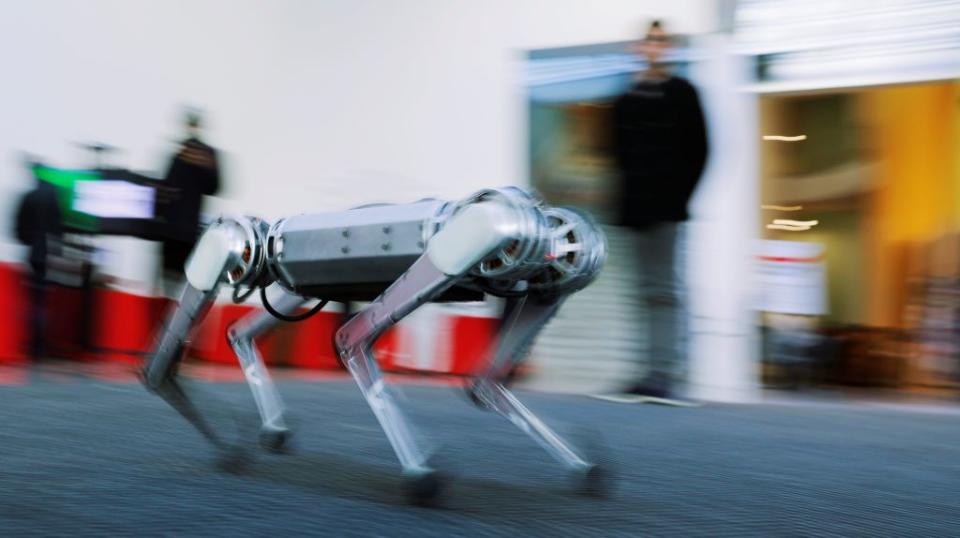Everything we know about work is changing. Here’s how to adapt

Evolution is never a smooth process. Think of your appendix: It lost its job generations ago as our bodies evolved. It may not be needed now, but it can still cause a great deal of pain, generally at the least convenient time.
As companies adapt in the fourth industrial revolution, and the “what, who, where” of work changes, many people may wonder if they’re turning into the corporate version of an appendix—unnecessary and obsolete. I understand how painful that thought can be, but we need to remember there’s a big difference between us and our physiology. Humans can choose to change, to remain a vital and integral part of our organizations, to adapt to the business evolution going on around us, to fire up our intellectual curiosity and embrace continuous learning.
Yes, your education and skillset will give you a good start in the working world, and subject-matter expertise in your chosen area is a great foundation, but it’s not enough. With technology evolving so rapidly, the skills you use today may be obsolete within five years—in some cases, maybe even half that long. You can keep up with the change if you commit to keeping your skills and your ideas fresh through continuous learning and curiosity.
Learn from your co-workers
The type of work you do will change during the course of your career, as will the people you work with. Some will be full-time colleagues, others will be contractors, and some may be crowdsourced contributors you never meet. You’ll also be working with a wider range of generations—from baby boomers to Gen Z. The workforce is the most diverse the world has seen, with many digital natives and other workers who value development, well-being, diversity of experiences, and an inclusive culture. To them, disruption is more of an expectation than a fear.
These are people who are naturally well-positioned to be agile, and our exposure to them gives all of us opportunities to learn, to mentor, and to have our work shaped by colleagues with a wide range of perspectives and skills.
Be curious about emerging technologies
There’s so much on the leading edge that is potentially disruptive and poised to change the way we work and live. Stay fresh and learn about these things, and how they may play to your strengths. You don’t need to be an expert on everything but show an interest and a willingness to be more tech savvy.
For me, that’s meant learning something about robotics, artificial intelligence, virtual and augmented reality, and blockchain. For example, I used to think blockchain was something you needed only if you were trading cryptocurrencies, but now I know it’s a distributed network that can validate all kinds of transactions as they occur. This has wide implications for the banking industry, smart contracts, and Deloitte’s own audit practice, as well as other parts of our business. And today we are using AI in our hiring practices and content curation for talent development, among other things. This is why a culture of development is so important to your continued success.
You also have to understand yourself
Smart companies these days look out for the well-being of their people, but that really starts with you, knowing your physical, mental, and emotional priorities and limits. Don’t run yourself into the ground on an assignment. Capitalize on the opportunities your organization offers to rest—and try to really unplug. Exercise, eat right, meditate, or do whatever you need to do to keep yourself centered and balanced. And if you think sleep is not important, I’ve got news for you. One of the single most important things you can do to maintain your health and reduce stress is get seven to eight hours of sleep every night. Learn what’s really important to your health and mental well-being.
Finally, remember why you work
Beyond the money, do you see a higher purpose in your contributions at work? What kinds of relationships do you have with your colleagues, your clients, your community? These are profoundly personal questions that are important to consider on your career (and life) journey. These are also things that artificial intelligence can’t replace. Keep sight of your humanity, stay engaged and intellectually curious—and no matter how work evolves, you’ll be able to evolve with it.
Mike Preston is the chief talent officer for Deloitte US.
Sign up for the Quartz Daily Brief, our free daily newsletter with the world’s most important and interesting news.
More stories from Quartz:

 Yahoo Finance
Yahoo Finance 